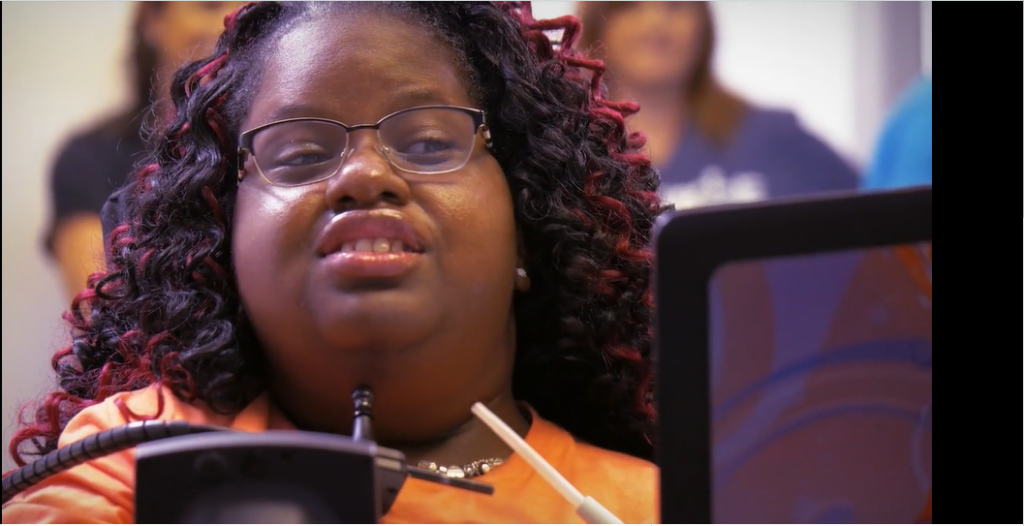 Editor’s note: To hear Dyani Peterson tell her own story, click here.
Editor’s note: To hear Dyani Peterson tell her own story, click here.
As a high school student at No Limits Academy in Melbourne, Florida, Dyani Peterson took dual enrollment classes from Eastern Florida State College.
She crushed it.
She graduated in 2020 with her high school diploma from No Limits, an associate degree from Eastern Florida, and was among those chosen to represent the college on the 2020 All-Florida Academic Team, which consisted of 166 students from the 28-member Florida College System.
The 21-year-old’s story is even more amazing given the fact she has arthrogryposis multiplex congenita, a condition that results in decreased flexibility of the joints. The disease has progressed to the point where Peterson can move only her head.
“The dual enrollment program has ended up making me successful for my college career today,” said Peterson, who attended No Limits on a Gardiner Scholarship. “I know that with my complex physical disabilities and all the adaptions I needed, my tuition did not touch the cost of educating me, but No Limits Academy did it anyway, because they saw my future.”
Now a biomedical engineering major at Florida Institute of Technology, Peterson is urging lawmakers to support SB 52 and HB 281, which would set aside $12.5 million to cover the cost of dual enrollment for private school students as well as students who are educated at home. The bills, currently being debated in legislative committees, also include $16 million to cover the cost of summer courses for all dual enrollment students.
The legislation has been proposed for the past several years to correct a glitch in state law that happened in 2013. Funding issues occurred at that time when a change in the law shifted the cost of dual enrollment programs from colleges to school districts. Because school districts are state funded, the state picked up the cost. But private schools, faced with having to pick up the costs themselves, had no alternative but to limit their dual enrollment offerings.
Despite bipartisan support, the bills died in committee. Supporters hope 2021 will be the year the issue gets corrected.
Sen. Ray Rodrigues, R-Fort Myers, the bill’s sponsor, said this latest attempt to correct the problem benefits the state overall because students who participate in dual enrollment go to college at a much higher rate than their classmates and are more likely to earn college degrees than their peers.
And because the bills would provide relief to private schools, students like Peterson would benefit. While she was aware she could have gone to a district school and had her dual enrollment costs covered by the state, her condition required that she attend a private school like No Limits Academy, which specializes in educating students with complex physical issues.
No Limits Academy founder and director Laura Joslin said she’s proud of all that Peterson and her other dual enrollment students have accomplished. She encourages students whose abilities make college a suitable fit for them to pursue their dreams regardless of what it costs her school.
“I work hard to raise $100,000 in donations every year so that I can help my students overcome physical challenges to get the best education they possibly can,” Joslin said. “That includes dual enrollment.”
If approved, the new law would allow her to shift those dollars toward more equipment and staff so that more students at No Limits can receive a high-quality education.
And that might just lead to even more students with unique abilities earning college diplomas.


